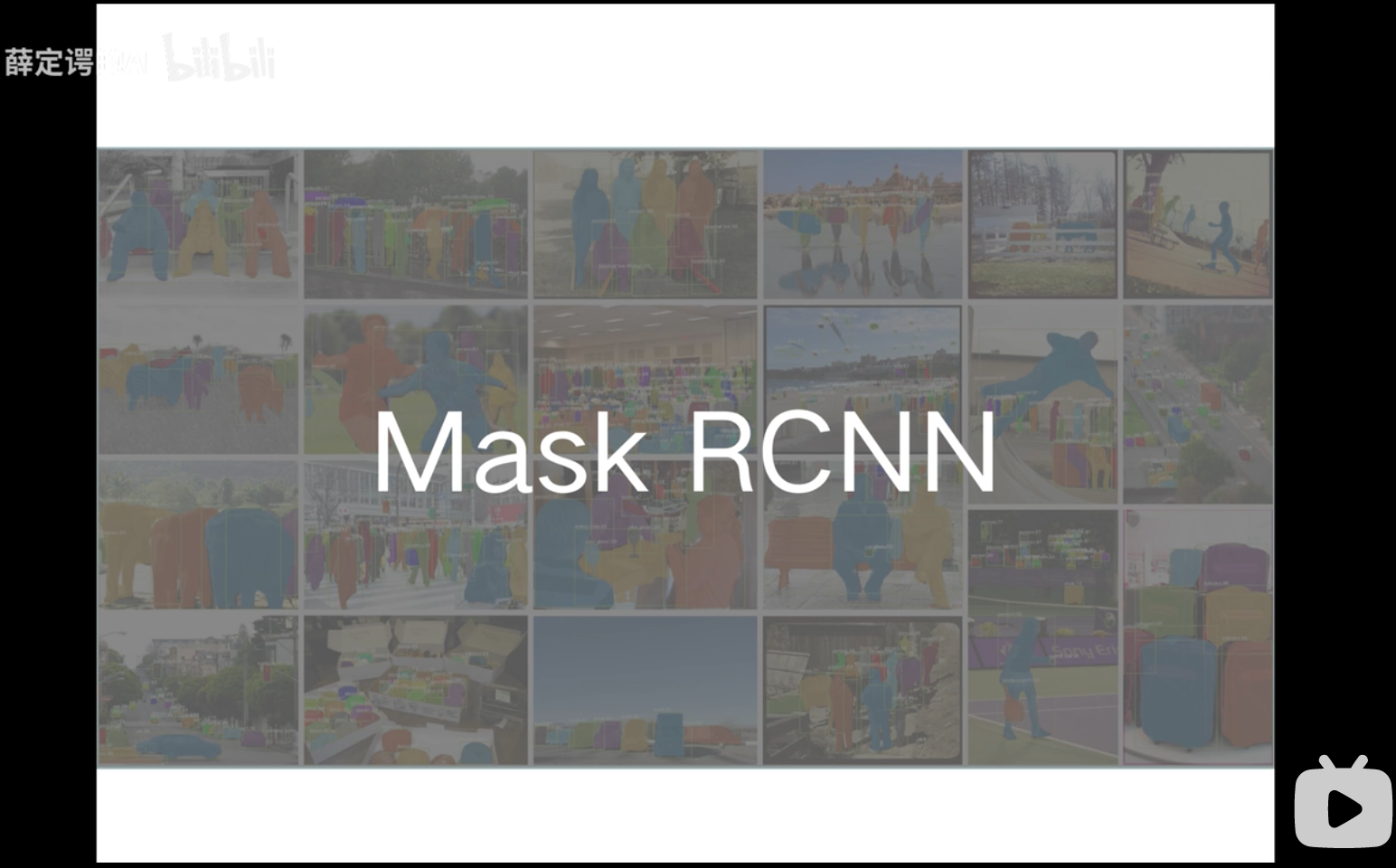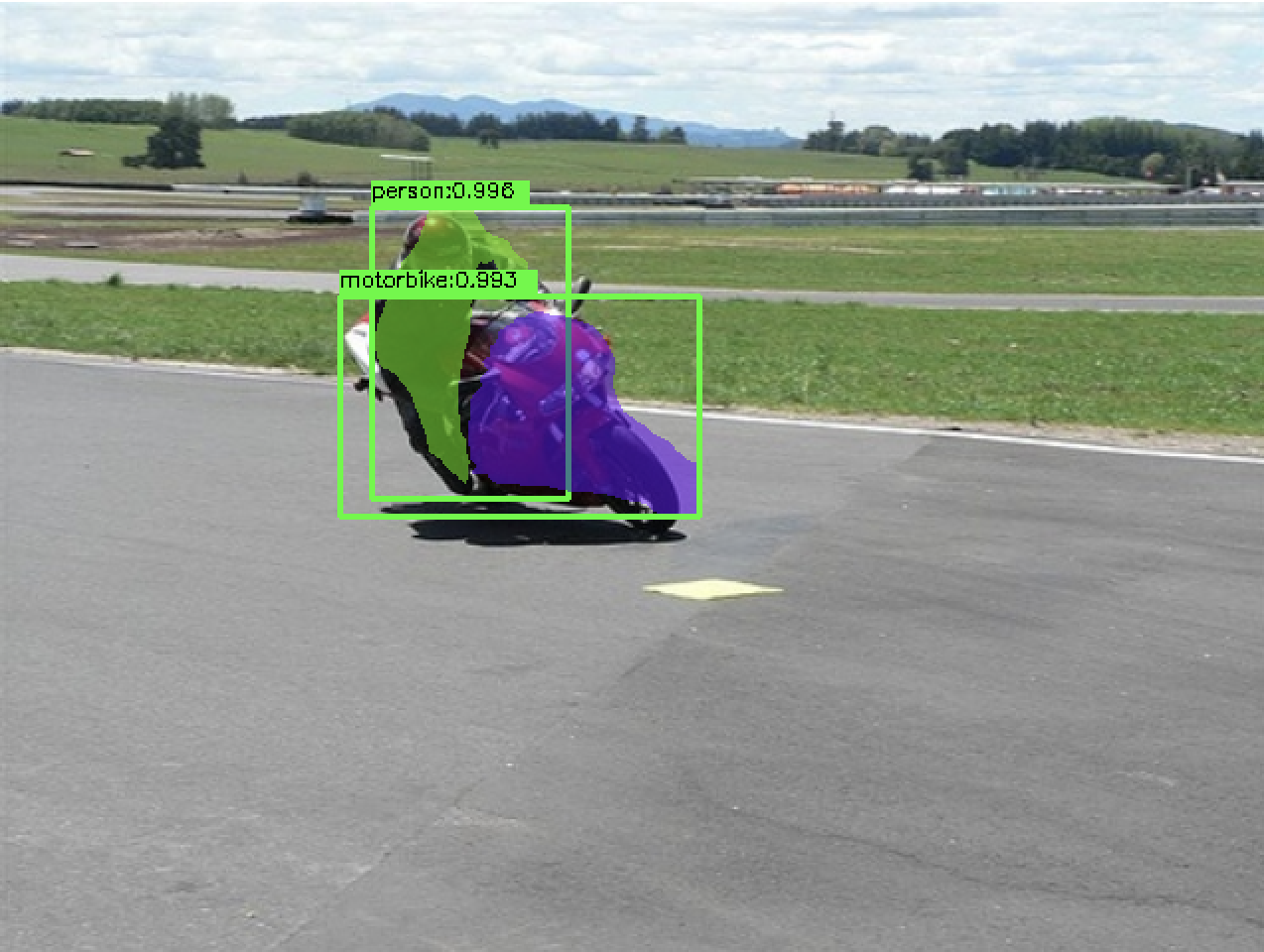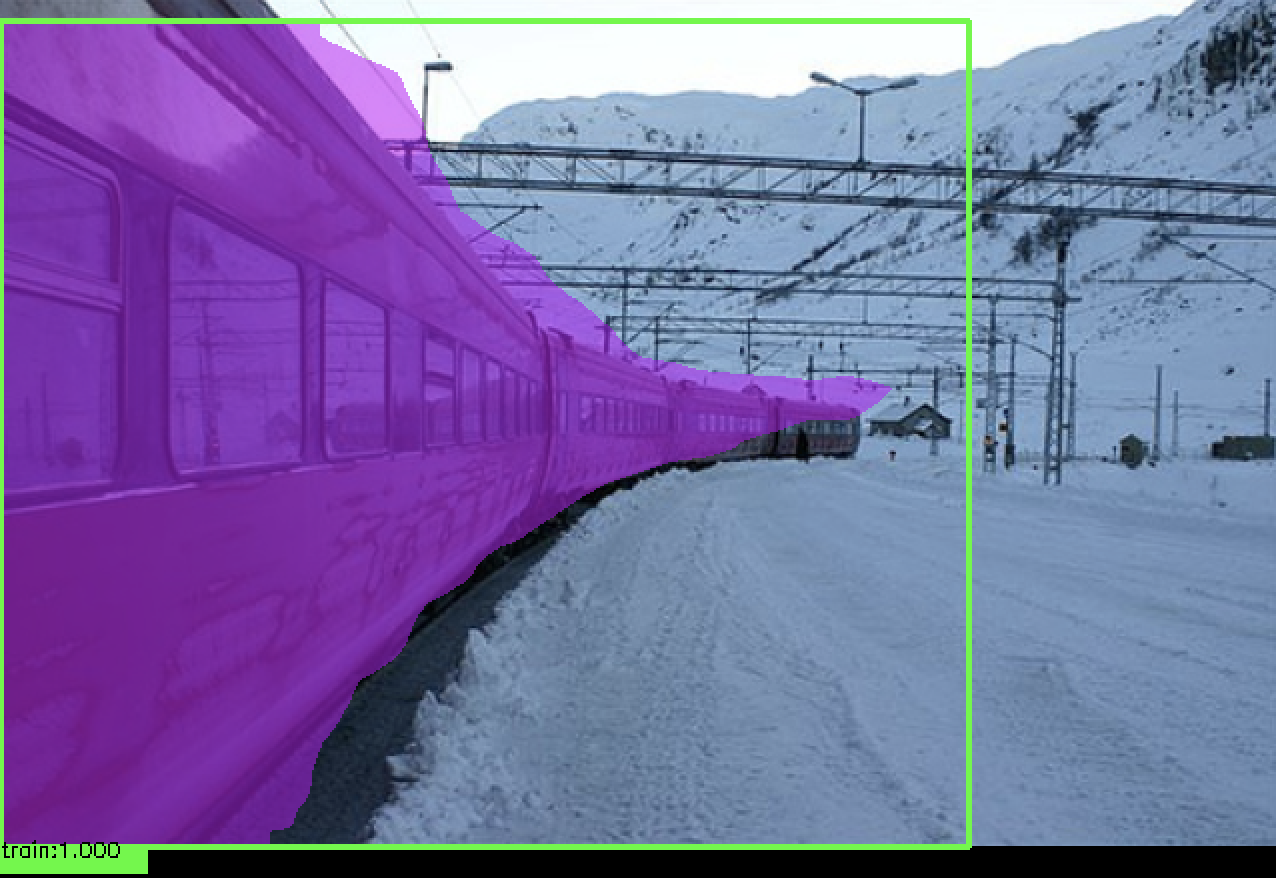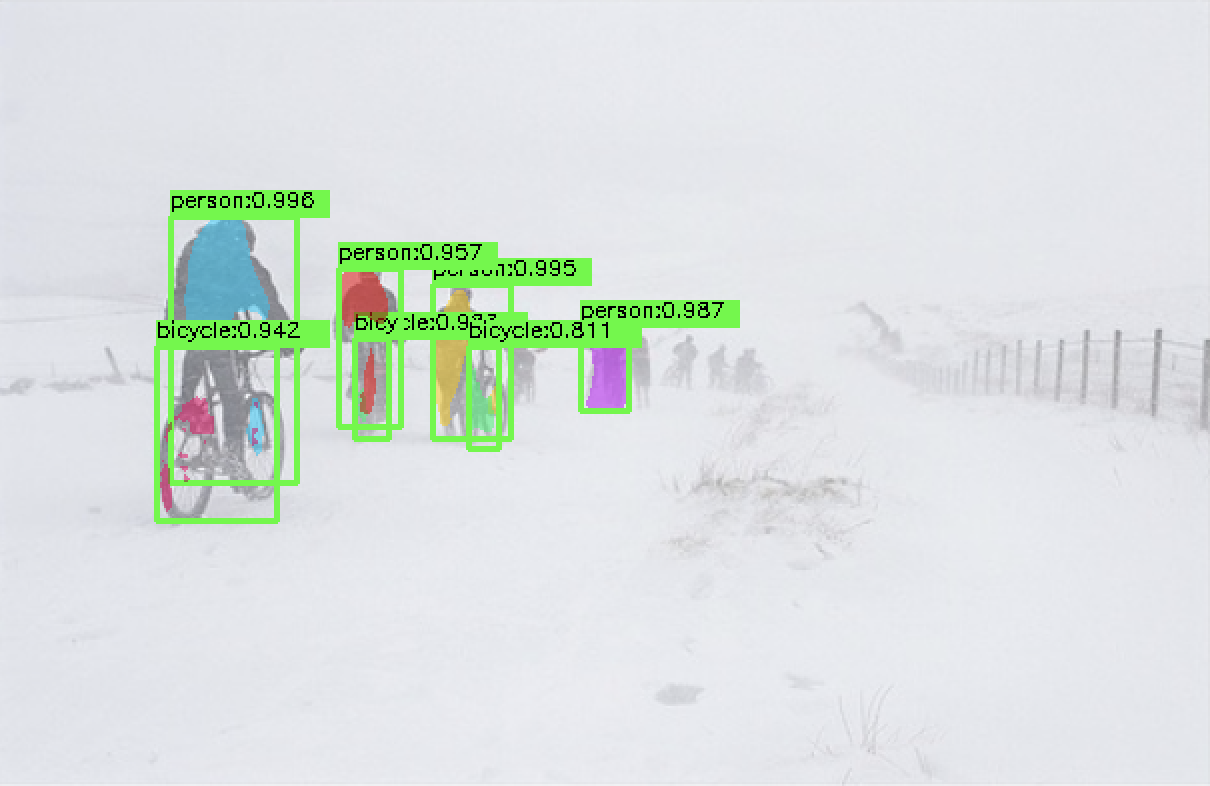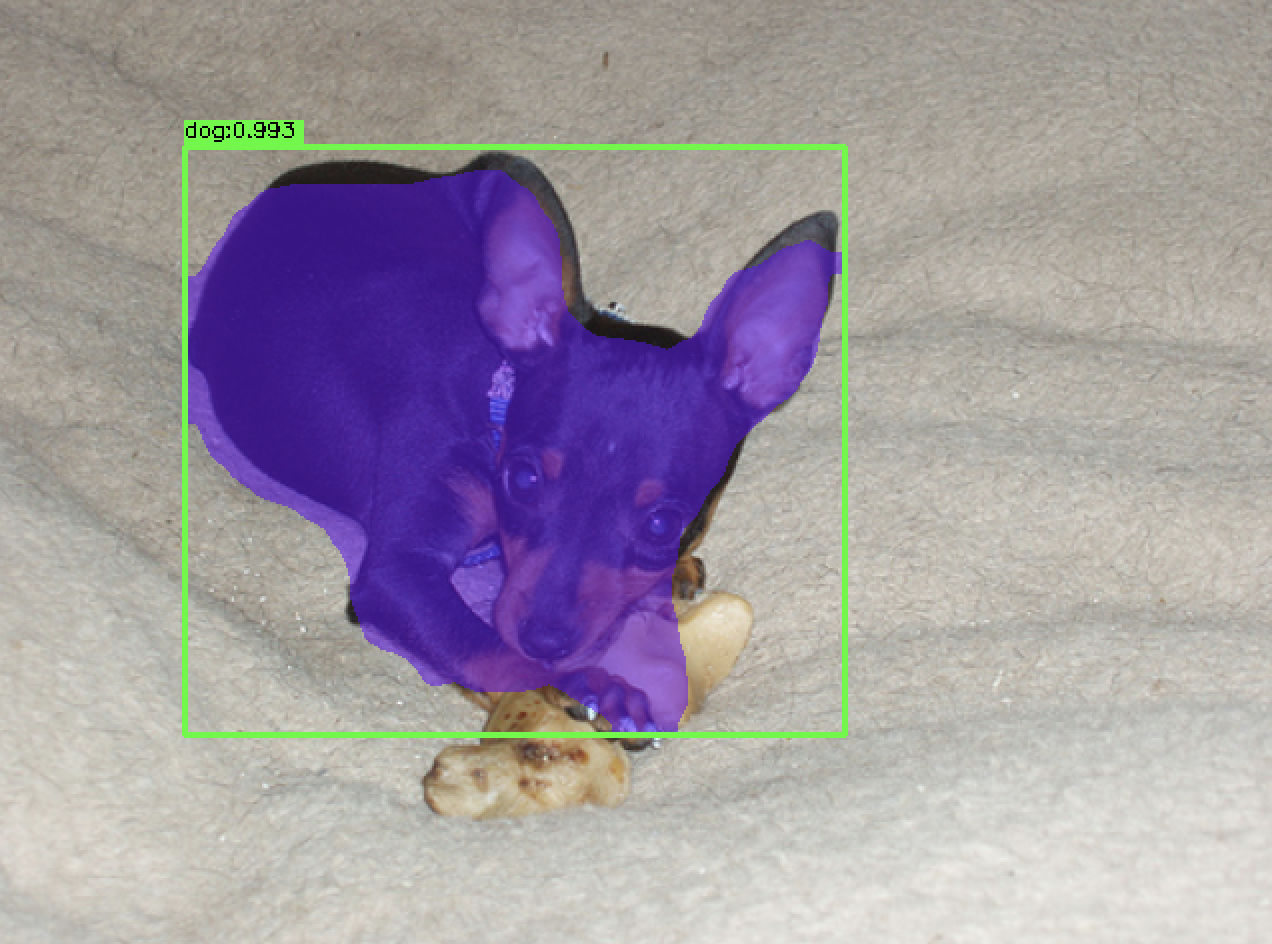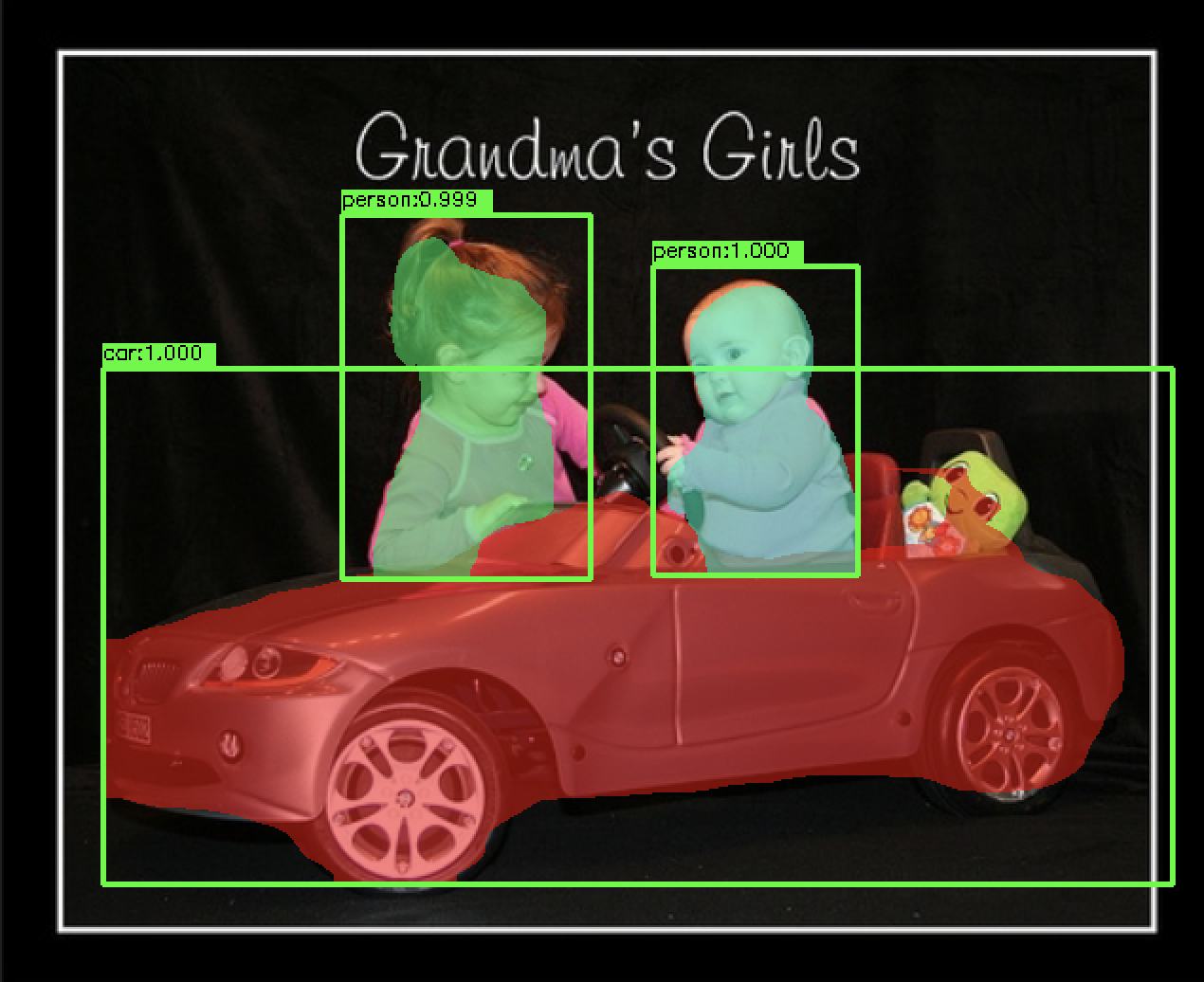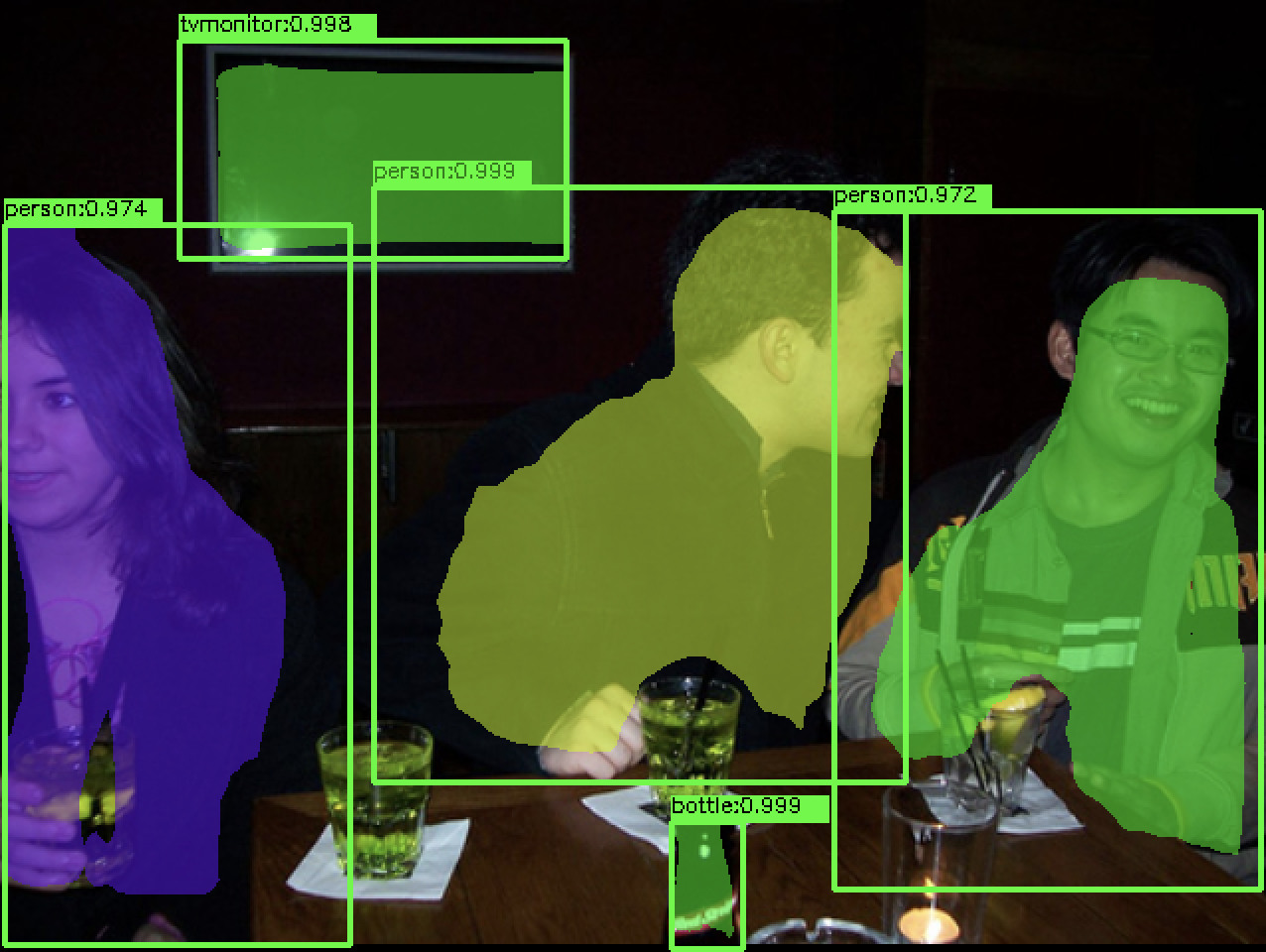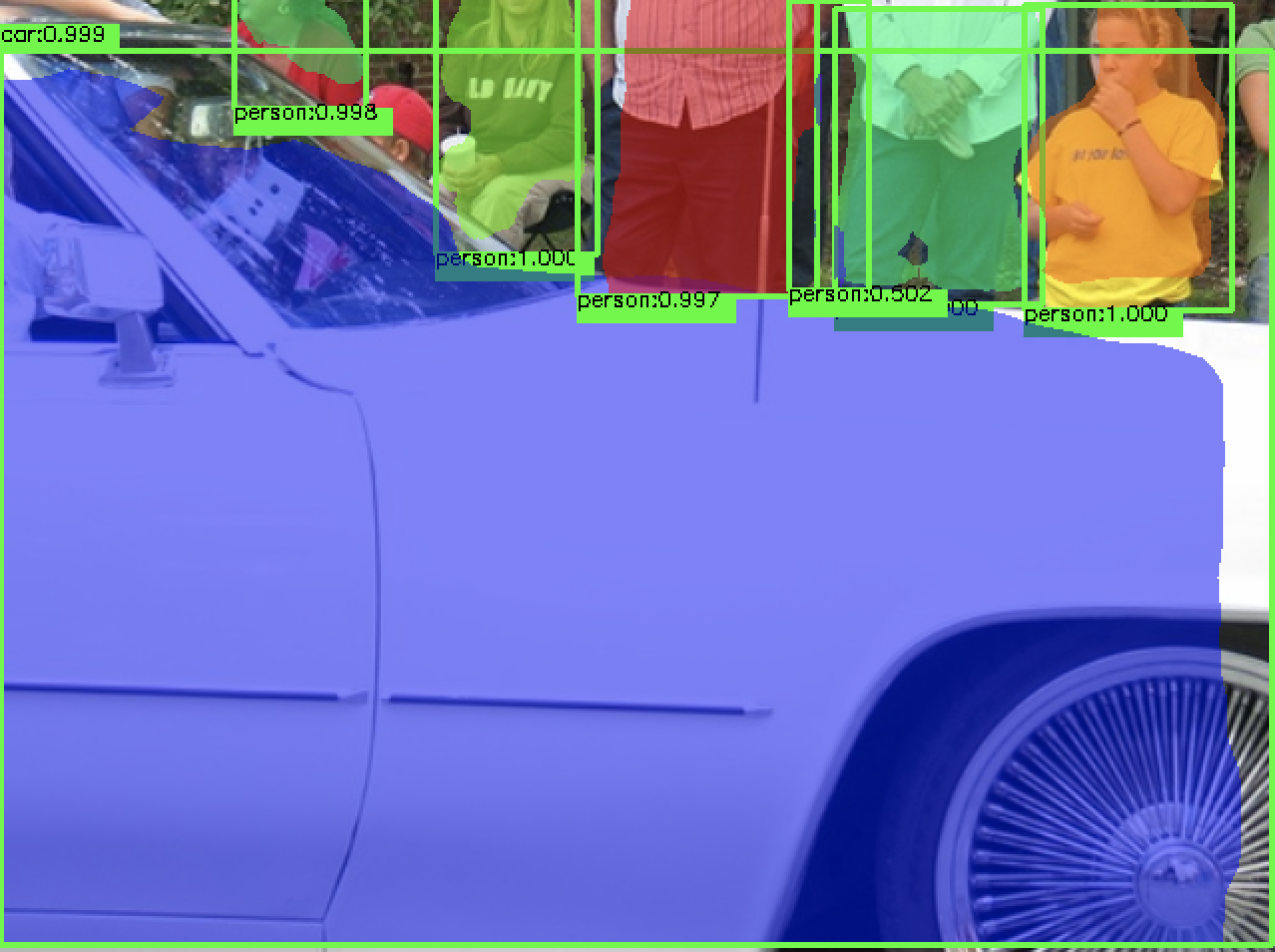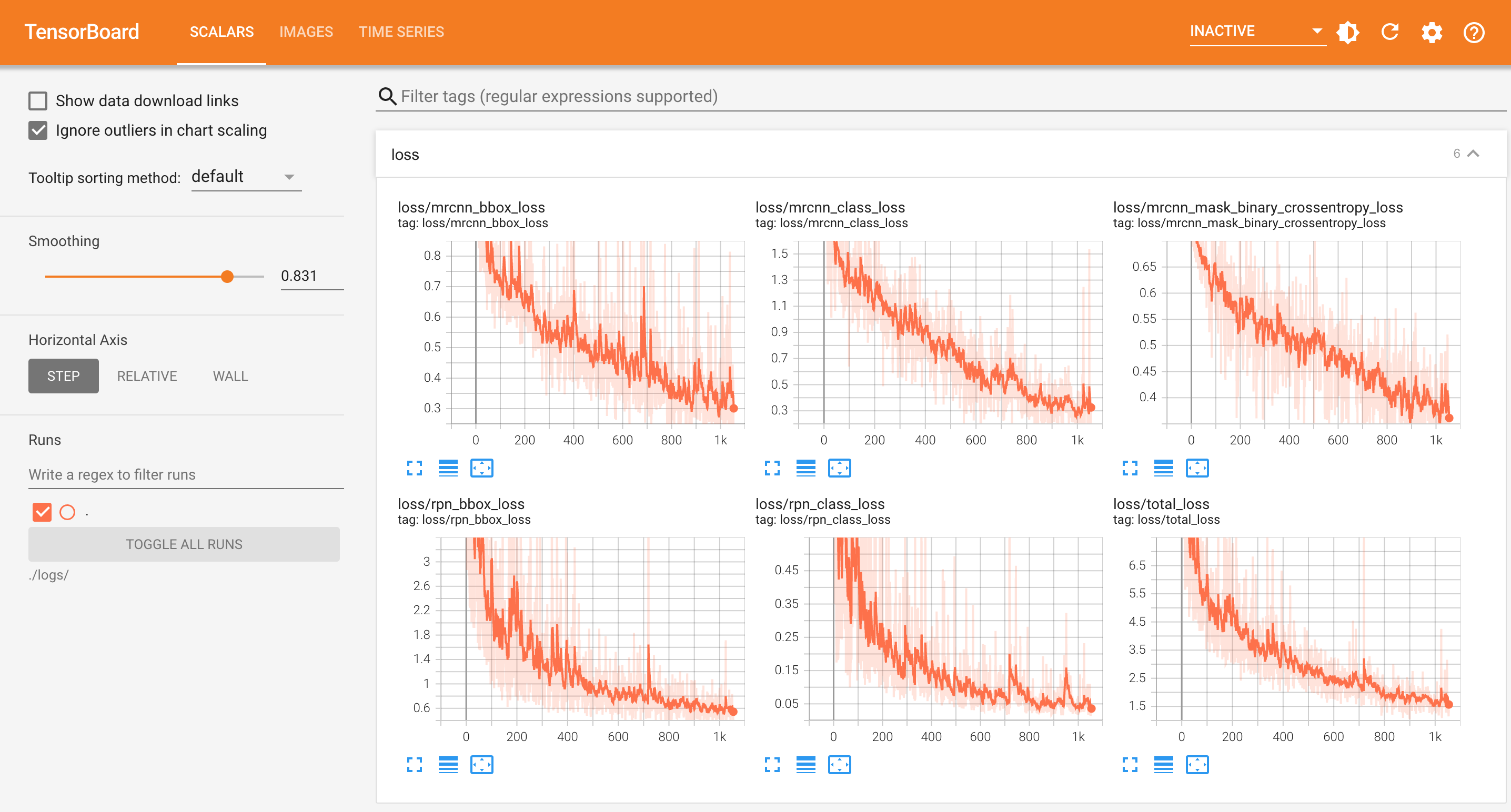- tensorflow-gpu >= 2.1.0
- xmltodict
- Pillow
- opencv-python
- matplotlib
- VOC2012
- 训练voc数据
python3 train_voc.py- 训练coco数据
python3 train_coco.py- tensorboard查看效果
tensorboard --host 0.0.0.0 --logdir ./logs/ --port 9013 --samples_per_plugin=images=40- 浏览器打开:
http://127.0.0.1:9013
- 构建模型
from mrcnn.mask_rcnn import MaskRCNN
mrcnn = MaskRCNN(classes=['_background_', 'aeroplane', 'bicycle', 'bird', 'boat', 'bottle', 'bus',
'car', 'cat', 'chair', 'cow', 'diningtable', 'dog', 'horse', 'motorbike',
'person', 'pottedplant', 'sheep', 'sofa', 'train', 'tvmonitor'],
is_training=False,
batch_size=1,
image_shape=[640,640,3])- 加载权重
model_path = '.h5 file path'
mrcnn.load_weights(model_path, by_name=True)- 测试, 在
../data/tmp目录下可以看到检测结果保存的图片
import cv2
from mrcnn.anchors_ops import get_anchors
anchors = get_anchors(image_shape=mrcnn.image_shape,
scales=mrcnn.scales,
ratios=mrcnn.ratios,
feature_strides=mrcnn.feature_strides,
anchor_stride=mrcnn.anchor_stride)
image_file = "你的测试图片路径"
image = cv2.imread(image_file)
# draw_detect_res_figure=True, 这里会将预测结果的目标边框,分割mask画到原图上, 保存在../data/tmp/test.jpeg下
boxes, class_ids, scores, masks = mrcnn.predict(image=image, anchors=anchors, draw_detect_res_figure=True)- labelme打标好自己的数据
- 打开
data/labelme2coco.py脚本, 修改如下地方
input_dir = '这里写labelme打标时保存json标记文件的目录'
output_dir = '这里写要转CoCo格式的目录,建议建一个空目录'
labels = "这里是你打标时所有的类别名, txt文本即可, 注意第一个类名是_background_, 剩下的都是你打标的类名, 每行一个类, 如下图示例"
- 执行
data/labelme2coco.py脚本会在output_dir生成对应的json文件和图片 - 修改
train_coco.py文件中classes和coco_annotation_file, 注意classes第一个需要是'_background_', 每个类名单独一行 - 修改
train_coco.py里面的data_size=-1, 表示训练全部数据, 然后开始训练python3 train_coco.py
- tf2复现代码: /mrcnn
- tf2复现代码训练coco数据: /mrcnn/train_coco.py
- tf2复现代码训练voc2012数据: /mrcnn/train_voc.py
- tf1官方代码: /official_mask_rcnn/mrcnn
- tf1官方代码训练voc2012数据: /official_mask_rcnn/samples/voc/voc2012.py
